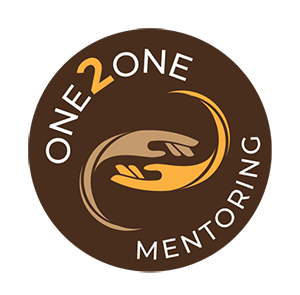
Author: Dr Michael Ogundele
Racism in the workplace against the Black and Minority Ethnic (BAME) community, whether obvious and purposeful or subtle and subliminal, may lead to significant overt and covert mental health (MH) issues. Many BAME citizens experience racism and discrimination in many areas of their daily lives, and no one seems to be shielded by any level of personal or professional attainment in the society. Reni lamented, “It’s truly a lifetime of self-censorship that people of colour have to live with” (1). Sterling (an elite and accomplished premier league footballer) recently tweeted, “The young black kid (footballer) is looked at in a bad light… which helps fuel racism and aggressive behaviour” (2).
Levels of racism experienced by the BAME community:
- Covert universal structural racism across all sectors of the society (feeling of entitlement by white majority and disrespect for others), including systematic organisational racism, a collective culture set by the white majority, where anyone who falls outside the culture must conform or face failure. These include the silently raised eyebrows, the implicit biases and snap judgments made on assumptions of competency.
- Daily conscious or subconscious subtle and covert acts directed at minority groups to harass, intimidate and belittle, often out of implicit biases e.g., everyday hostile slights, snubs, indignities, put-downs, using derogatory names, insensitive jocular comments, denying or minimizing their experiences (3), and have harmful effects (4). These incessant and cumulative “mini disasters” result in impaired emotional and physical health including anger, depression, self-doubt, lower work productivity, migraines, premature labour, etc. (5).
- Overt racism (ingrained verbal or physical threats, character assassination, false accusations, fault finding etc.), extremes of hostilities to minority groups who are deemed to be “non-conformists”.
Levels of racism enacted by the non-BAME community:
- Individual levelThe vast majority of white people have an emotional disconnect with their minority citizens and have never known what it means to embrace a person of colour as true equals, with thoughts and feelings that are as valid as their own. They will go to any length to deny the accusation and refuse to acknowledge or validate the daily experience of BAME people (1).
- Organisational/ institutional levelInstitutional racism is characterized by systematic policies, laws, practices, operations and cultures of public or private institutions that reinforce individual prejudices and provide differential access to goods, services and opportunities of society to people of certain races.
Published evidence of racial discrimination in workplaces
The “Ethnic penalty” is a term coined by the market outcome literature, used to refer to the poorer labour market outcomes observed for ethnic minorities, even where factors such as educational attainment and age are considered.
A book called “Freakonomics” by Levitt and Dubner in 2005 confirmed that Individuals with a white sounding name stand a higher chance of being hired than those with less white sounding names (6).
Research carried out by the National Centre for Social Research (NCSR) on behalf of the UK Dept for Work and Pensions between 2008 and 2009 showed that applications with CVs from people with white sounding names were 74% more likely to receive a positive response than applications from people with an ethnic minority name (7).
A recent report from the Centre for Social Investigation reveals that levels of discrimination have remained unchanged since the 1960s. Between 2016 and 2017, the researchers found that while 24% of the white majority received a positive response from employers, the job search effort was successful for ethnic minorities in only 15%. Minority ethnic applicants in the UK had to send 60% more applications than their white counterparts in order to get a job interview (8).
A recent Chartered Institute of Personnel and Development (CIPD) study identified that one in eight of the working-age population is from a BAME background, yet they occupy only one in sixteen of top management positions. CIPD also estimated that £24 billion a year could be added to the UK GDP if there was full representation of BAME individuals across the labour market (10).
Workplace experiences of BAME communities
From a survey of 1,290 UK employees, than those from a white British background admitted that their career progression to date had failed to meet their expectations. All BAME employees, regardless of ethnicity, were significantly more likely than white British employees to say that seeing other people like them who have progressed in the organisation would help boost their careers. BAME employees were most likely to say they were willing to work harder than they had to in order to help the organisation succeed (9).
Lessons for BAME communities
- Take advantage of cultural norms
Authors of a 2014 publication confirmed from analysis of seven studies that the display of middle initials in formal contexts increases positive evaluation of people’s intellectual capacities, status and achievements (10).Many employers are more interested in your social competence, and not necessarily your job-skill competence (11).
- Recognise the key role of mentoring and integration to acquire essential transferable skills
Seek out mentors and more experienced professionals in your particular or related fields for regular advice and guidance.Do not feel pressured to respond to every act of hostility and choose your battles.
Try your best to establish social interactions with at least a small number of friendly white colleagues.
- Take steps for self-inclusion and indemnity
Be willing to adapt and flexibly adopt new ideas and skills, especially regarding social communication skills.It’s mandatory to join a trade union and indemnity / defence organisation related to your area of specialty.
- Essential Personal life skills
Maintain a positive attitude even amidst setbacks and opposition, constantly aiming for the best, acknowledging some of your past achievements.Remain focused and committed to excellence. A successful female BAME CEO once said, “if you have to work doubly hard to get ahead, so be it!”
Seek out relaxing hobbies or volunteering activities that will help you to regularly reset your sanity and sense of worth.
- Indispensability of spiritual development
Do not neglect your spiritual well-being.Find like-minded people for social and spiritual networking.
Lessons for white majority communities
- Pause for a moment, before you speak, especially if you are commenting on someone’s identity (3).
- Become more curious about the way your actions and words are perceived by others and be constantly vigilant of your own biases and fears.
- Listen when people explain why certain remarks offend them and don’t be defensive.
- Seek out interaction with people who differ from you, but without putting pressure on them.
- Be an ally and personally stand against all forms of bias and discrimination, because if you don’t speak out, you may be sending a message to the perpetrator and victim of the microaggression/discriminatory behaviour, that what happened was acceptable (4).
Additional Resources:
- Please follow this link for useful materials including petitions, courses, books, films and documentaries:
https://1drv.ms/b/s!AueQ5UKDxD1OgRwjgOGBGkwa_0gz?e=caecvR
- Other useful online resources
What language should you use to refer to other colleagues?
https://civilservice.blog.gov.uk/2019/07/08/please-dont-call-me-bame-or-bme/
What is a micro-aggression?
https://www.thoughtco.com/microaggression-definition-examples-4171853
Show racism the Red Card in the NHS video
https://www.youtube.com/watch?v=cMv3rvixERg
Author:
Dr Michael Ogundele is a Consultant Neurodevelopmental Paediatrician working in the NHS.
He completed his medical education in the premier University of Ibadan in Nigeria before proceeding to do his postgraduate training in Immunology and Paediatrics in Germany and the UK respectively. He’s passionate about teaching and mentoring and has published widely in several scientific journals.
You can contact the author: mogundel@gmail.com
References
- Reni Eddo-Lodge. Why I’m No Longer Talking to White People About Race. Feb 2014. https://thebranddirectoress.com/wonderful-women-wednesday/2020/7/15/njk5bums89m50kerg1vf9nbpnpzf27
- BBC Sports (Dec 2018. https://www.bbc.co.uk/sport/football/46498849
- Sue DW. Microaggressions in Everyday Life: Race, Gender, and Sexual Orientation. 2014. https://www.wiley.com/en-gb/Microaggressions+in+Everyday+Life%3A+Race%2C+Gender%2C+and+Sexual+Orientation-p-9780470594155
- Hopper, Elizabeth. “What Is a Microaggression? Everyday Insults with Harmful Effects.” ThoughtCo, Aug. 27, 2020, https://www.thoughtco.com/microaggression-definition-examples-4171853.
- Nada KL. et al The Impact of Racial Microaggressions on Mental Health Counseling Implications for Clients of Color. January 2014. Journal of counseling and development: JCD 92(1):57-66. DOI: 1002/j.1556-6676.2014.00130.x
- Steven D. Levitt and Stephen J. Dubner. Freakonomics. Freakonomics. April 2005. William Morrow and Company https://freakonomics.com/
- Wood M, Hales J, Purdon S, Sejersen T and Hayllar O. A test for racial discrimination in recruitment practice in British cities. Department for Work and Pensions Research Report No 607. 2009, pp: 80. Online: https://www.natcen.ac.uk/media/20541/test-for-racial-discrimination.pdf
- Di Stasio V. and Heath Are employers in Britain discriminating against ethnic minorities? GEMM project. 2019. Online: http://csi.nuff.ox.ac.uk/wp-content/uploads/2019/01/Are-employers-in-Britain-discriminating-against-ethnic-minorities_final.pdf
- Chartered Institute of Personnel and Development (CIPD) Report. Addressing the barriers to BAME employee career progression to the top. Dec 2017. Online: https://www.cipd.co.uk/Images/addressing-the-barriers-to-BAME-employee-career-progression-to-the-top_tcm18-33336.pdf
- van Tilburg WAP. and Igou ER. (2014). The impact of middle names: Middle name initials enhance evaluations of intellectual performance, European Journal of Social Psychology, 44, pages 400– 411. DOI: 1002/ejsp.2026
- Wolgast, S. (2017). How does the job applicants’ ethnicity affect the selection process? Norms, Preferred competencies and expected fit. Lund University. Online: https://portal.research.lu.se/portal/files/30958727/Wolgast_Sima_How_does_the_job_applicants_ethnicity.2017.pdf
